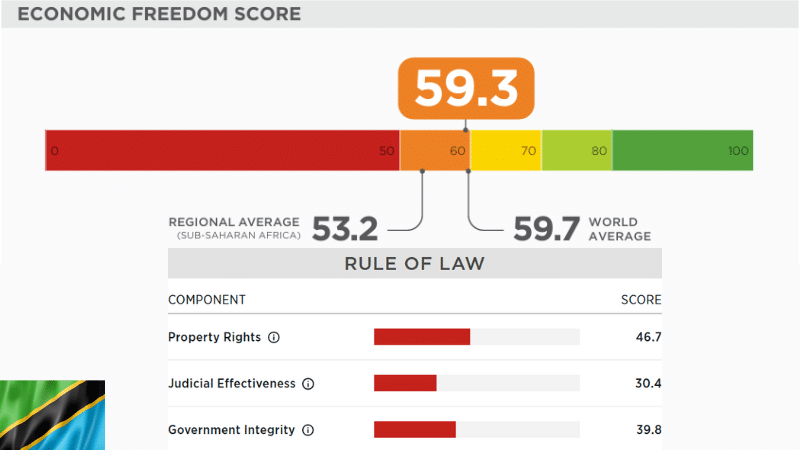The Heritage Foundation has released its 2025 Index of Economic Freedom, which evaluates countries based on 12 economic freedoms, including property rights, government integrity, business freedom, and trade freedom.
Tanzania has been ranked 92nd globally out of 184 countries, with an economic freedom score of 59.3. This represents a slight improvement of 0.2 points compared to the previous year.
Regionally, Tanzania is ranked 6th out of 47 nations in Sub-Saharan Africa. Its score surpasses the regional average of 53.2 but remains below the global average of 59.7. Despite this progress, Tanzania’s economy is classified as “mostly unfree.”
The report highlights that Tanzania has achieved significant progress in income growth and poverty reduction over the past decade. The modernization of the financial sector has facilitated credit allocation at market rates, fostering a more dynamic entrepreneurial environment.
However, the report emphasizes the need for deeper institutional reforms to address long-standing structural challenges, including poor public finance management, an underdeveloped legal framework, and corruption, which undermines the rule of law.
Tanzania’s regulatory environment is described as relatively well-institutionalized but lacking efficiency. The country’s business freedom score is significantly below the global average, while its labor and monetary freedom scores are above the global average.
The trade-weighted average tariff rate is 9.1%, but non-tariff barriers and outdated investment regulations continue to hinder trade and investment growth. Despite these challenges, the private sector benefits from access to a range of commercial credit instruments.










